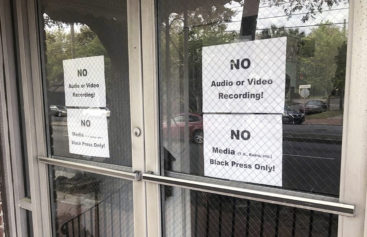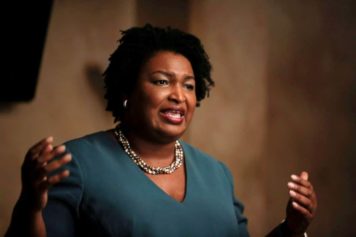The “State of the Black Press” round table and luncheon held at the National Press Club during this year’s Black Press Week in Washington, DC highlighted the need for Black publishers to migrate to more widely sourced digital platforms in order to expand their readership and survive in this era of online news. The National Newspapers Publishers Association’s chief objective is to keep business alive for the Black press in America and develop a broader vision of how to connect with the community. This year the NNPA has pledged to work diligently to cement relationships with the community, increase circulation and keep these publications viable. Len Burnette, co-CEO of Uptown Media Group, explained to the crowd that hyper local content is central in engaging readers and expanding readership in today’s digital platform. African American internet use out indexes any other demographic in the country. African Americans are mobile and online and that is where these publications have to go to maintain and increase readership. How a newspaper or magazine is read digitally should be the foremost consideration when publishers are creating content. Burnette encouraged publishers to begin to incorporate technology into how they publish their content. “Get ahead in digital. Get your technology game in order,” Burnette said.
Social responsibility and civic engagement, once the foundation of the Black press has had a lesser role in some publications now that publishers have to focus more in where their advertising dollars are coming from. Advocacy and insuring that readers know that if they are not participating their communities’ things will not change, seems to have been a lost dialogue. Reverend Jesse Jackson spoke about the importance of the Black press in the voting process and asked the audience to use their publications to reach out the more than ten million unregistered African American voters. “You can’t represent Black people you talk for but don’t talk to,” Jackson said.
Marc Morial, President and CEO of the National Urban League, expressed the indispensable value of the Black press. “I get my knowledge from reading the Black press. I go there to learn about facts and stories I can’t get anywhere else.” Morial challenged the publishers to expect that Black elected officials that come to their publications asking for endorsements during campaign season support the Black press themselves. He also asked publishers to keep visibility of voter suppression high on the minds of the community. Noting what he called and “avalanche of new laws” allowing restrictions on voters.
Londell McMillan, owner and group publisher of the Northstar Group, pushed for publishers to begin to focus more on the business of running a paper in the digital age. Urging publishers to use corporate structure to come to the marketplace with a larger audience through mergers and acquisitions. McMillan advised building an investment club, pooling resources and developing co-op opportunities to reduce printing costs.
With all that was said regarding new media and new business models essential to the survival of the Black press, Chairman of Blackwell Media Danny Blackwell Sr., another panelist, reminded the group that, “there is no leader in the Black community who has reached their station without coming through the Black press.” Recognizing the influential role these trailblazing publishers have had in developing some of our greatest leaders.
Caryn Freeman is a journalism student at Howard University and the Editor-in-Chief of The Caxton Press.


